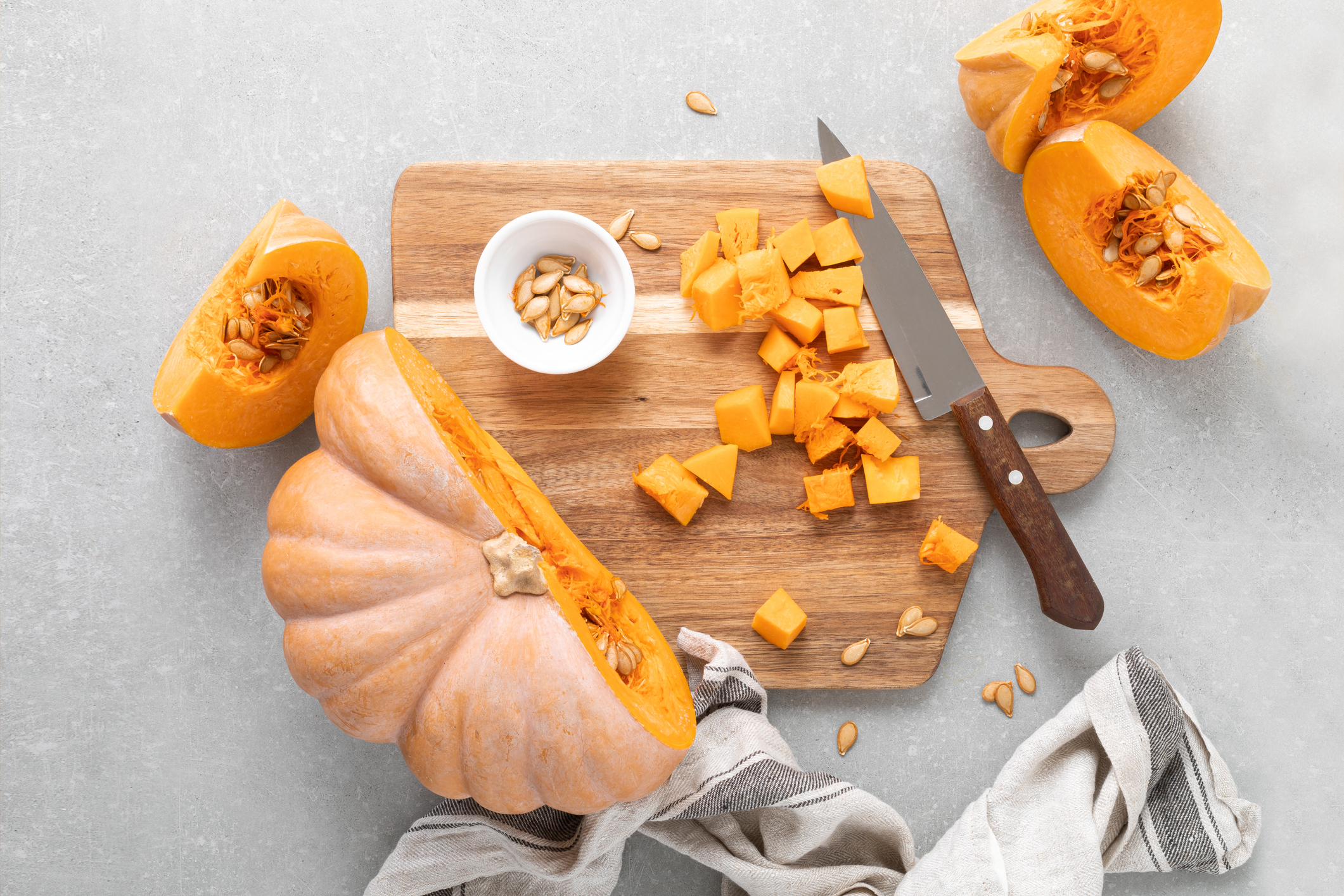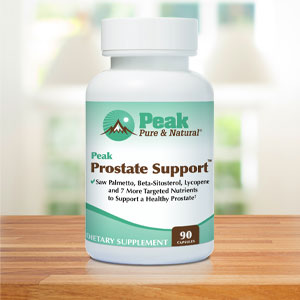Get Easy Health Digest™ in your inbox and don’t miss a thing when you subscribe today. Plus, get the free bonus report, Mother Nature’s Tips, Tricks and Remedies for Cholesterol, Blood Pressure & Blood Sugar as my way of saying welcome to the community!
3+ ways pumpkin can boost your wellness

Fall is my favorite season. I love the beautiful colors of the changing leaves, and the crisp, cool air is so refreshing after months of hot, humid weather.
And then there’s the food — hearty, comforting and warmly scented with spices like cinnamon, nutmeg and cloves. The fall and winter months are the best times to enjoy a wide variety of squashes, including the one for which the holiday season is best known: pumpkin.
We’ve talked a lot about the many benefits of pumpkin seeds. But the flesh of the pumpkin packs its own health punch. Here are some ways consuming pumpkin can help maintain your well-being….
A healthy dose of beta carotene
Orange vegetables like carrots, sweet potatoes and pumpkins are loaded with beta carotene, an antioxidant your body converts into vitamin A. A one-cup serving of pumpkin can provide 200 percent of your recommended daily vitamin A intake.
Vitamin A is key to protecting your vision and helping you to see more clearly, especially in low-light conditions. The nutrient plays a role in maintaining the health of the heart, lungs, kidneys and reproductive system. And it stimulates production and activity of white blood cells, helps with bone remodeling and supports the health of the endothelial cells lining the body’s interior surfaces.
Carotenes are also believed to have the potential to check atherosclerosis. In fact, studies found the greater the concentration of carotenes in the blood, the lesser the atherosclerotic burden, particularly in women
Beta carotene also helps to fight the impact of aging on your skin. It also can alleviate inflammation, which benefits both the skin and the body.
In addition to beta carotene, pumpkins contain vitamin C, vitamin E, iron and folate. All of these nutrients can boost the ability of your immune system to fend off germs and speed up wound healing.
Potassium for good heart health
The essential mineral potassium is sometimes referred to as an electrolyte because it carries a small electrical charge that activates many cell and nerve functions. Potassium helps to maintain normal cell fluid levels as well as muscle function and blood pressure.
While there isn’t enough evidence to establish a recommended dietary allowance for potassium, the National Academy of Medicine has established an adequate intake for the mineral. For adults, the adequate intake is 3,400 mg for men and 2,600 mg for women.
Pumpkin can help keep those potassium levels up. One cup of pumpkin contains about 394 mg of potassium, just shy of the 420 mg found in one banana. Eating pumpkin regularly can help maintain healthy blood pressure levels as well as lower your risk of stroke, kidney stones and type 2 diabetes. The potassium in pumpkin can also help increase bone mineral density.
Plenty of fiber to help manage weight
One cup of pumpkin only contains 30 calories, making it a great food to include in a healthy diet (as long as it’s not in pumpkin pie form). Plus, pumpkins contain a lot of fiber, which can help you feel full and keep you from overeating. In addition to helping curb appetite, fiber also promotes good digestive health, balances blood sugar and lowers your odds of contracting heart disease.
At 7 grams a cup, a daily dose of pumpkin can help boost your fiber intake. It’s recommended that men get 30 to 38 grams of fiber daily, while women should try to eat a least 21 to 25 grams of fiber a day.
Healthy ways to eat pumpkin
Say the word “pumpkin” and most of us think of that old holiday standby, pumpkin pie. But there are much healthier ways to consume this tasty squash.
For instance, try adding cubes of pumpkin to a mix of roasted vegetables or a vegetable casserole. Or whip up a tasty (and healthy!) pumpkin soup. You can even combine pumpkin with chickpeas to make delicious hummus. Surprisingly, pumpkin puree is a tasty addition to rich, thick and nutritious smoothies.
And when you carve your pumpkin, for Halloween or for a special recipe, be sure to keep and roast the seeds. They are rich in antioxidants, iron, zinc, magnesium and many other nutrients.
Native Americans used pumpkin seeds as an age-old remedy for bladder, kidney and digestive problems. Research has also shown pumpkin seeds to be effective in reducing prostate symptoms without side effects.
Editor’s note: There are perfectly safe and natural ways to decrease your risk of blood clots including the 25-cent vitamin, the nutrient that acts as a natural blood thinner and the powerful herb that helps clear plaque. To discover these and other secrets of long-lived hearts, click here for Hushed Up Natural Heart Cures and Common Misconceptions of Popular Heart Treatments!
Sources:
Health Benefits of Pumpkin — Nourish by WebMD
Vitamin A — Harvard T.H. Chan School of Public Health
Pumpkin — Eat This Much
Potassium — Harvard T.H. Chan School of Public Health
Where to find potassium, other than bananas — Sharp Health News
Fiber — Harvard T.H. Chan School of Public Health
9 reasons to add pumpkin to your diet — OSF Healthcare















